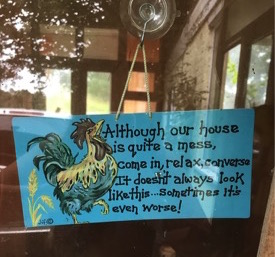Do you have a dream inside of you?
A desire to do something a bit crazy or risky? Run a marathon, start a business or write a book?
But you stop yourself because that little voice says you can’t do it?
And if you didn’t succeed you’d have to deal with feelings of rejection, failure or judgment from others?
So what happens?
You put it off. Carry on as you were. Fantasise about this other life.
Thing is – if you want to feel fulfilled you have to move outside your comfort zone and forget the ‘rules’.
The rules keep everyone in order
Throughout life we’re indoctrinated to follow the rules.
It begins at school…
Walk on the left. Be quiet. Do as you’re told. Don’t talk back.
The Pavlovian response continues…
Get a job. Work hard. Keep your head down. Don’t rock the boat.
In a word: conform. Play it safe. Don’t fail.
Fear and need make it hard to take risks
The ‘unknown’ is risk and isn’t taught in school. Yet.
Then there’s the need to belong.
When we lived in tribes, safety came from belonging. Breaking the rules equalled expulsion, which was a death sentence. The need to belong in order to survive is imprinted in our DNA.
When you mix fear of the unknown with a primal need to belong you understand why risk taking is scary.
Yet we’re perfectly positioned to change this now!
We live in an age of instant gratification, entitlement and celebrity. We have it all. There’s no urgency or requirement to challenge ourselves. But, living this way is limiting us as individuals and as a society.
Maslow’s hierarchy of needs holds self-actualisation higher than belonging.
If all other needs are met right now, we’ve the perfect springboard to realise the need for “What a man can be, he must be”. This refers to a person’s full potential and the realisation of that potential.
We have that chance now. It’s our time. Previous generations are gifting this to us. It’s our collective responsibility to break free of social conditioning and push ourselves beyond the familiar, so we can use our talents to inspire others.
Could we imprint self-actualisation to ensure future generations live daringly?
As the field of epigenetics unravels, we’re starting to see evidence that experiences (like fear) may be passed down two generations.
The epigenome (which sits above your DNA) controls DNA expression. Interestingly, your environment and your thoughts directly affect gene expression. That’s why identical twins (who have the same DNA) look different as the years pass.
So, if you’re not living on purpose and pushing yourself to do that ‘crazy thing’, how is that affecting your gene expression?
Couple this with Darwin’s Theory of Evolution, which states that “those most adaptable to change will survive”.
Could it be by pushing yourself outside your comfort zone you’re not only exercising adaptation but passing positive experiences of living on purpose down to your children and grandchildren, as well as inspiring those around you?
It’s controversial, but worth pondering…
Everyone has talent.
You are more than capable.
Don’t abandon your dreams.
Go fulfill your potential!
[Guest post by Minnievon, marketing strategist and success coach]



